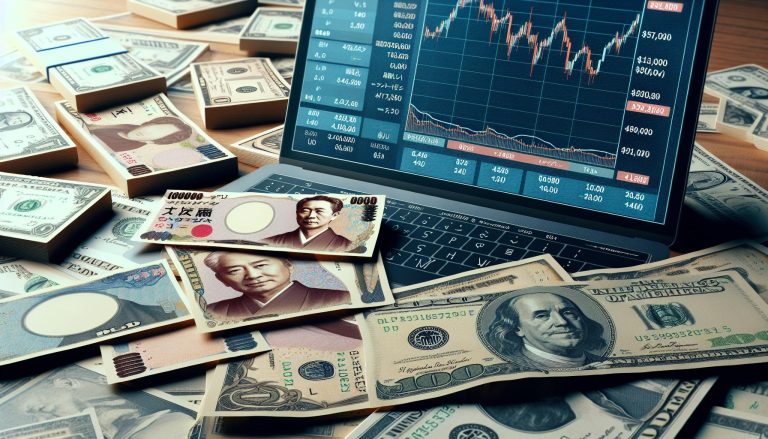XRP Lawsuit: The Ripple Effect on Crypto
You’re probably no stranger to the world of cryptocurrencies. The volatile market, the thrill of the trade, and the potential for significant returns. But there’s a storm brewing in this digital realm. The name at the center? XRP.
In this complex world of blockchain technology, Ripple, the company behind XRP, finds itself in the midst of a high-stakes lawsuit. The outcome of this case could set a precedent for the entire cryptocurrency industry.
Stay tuned as we delve into the latest updates on the XRP lawsuit, unraveling the intricacies and implications that could reshape the future of digital currencies. It’s more than just a legal battle; it’s a pivotal moment in the evolution of financial technology. Buckle up, because this journey is just getting started.
Overview of the XRP Lawsuit
Delving into the XRP lawsuit, we find it’s a significant legal proceeding that addresses the relationship between cryptocurrencies and regulatory bodies. This section highlights the key allegations against Ripple and presents a timeline for the proceedings, providing clarity on the convoluted matter.
Key Allegations Against Ripple
Ripple, the company that developed XRP, faces significant accusations from the U.S. Securities and Exchange Commission (SEC). The central contention is that Ripple held an unregistered securities offering, raising more than $1.3 billion through the sale of XRP. If deemed a security, XRP transactions would require stricter regulatory oversight, causing ripple effects across the cryptocurrency industry. For instance, exchanges dealing in XRP would need to register as securities exchanges – an expensive and time-consuming process.
Legal Proceedings Timeline
The legal action against Ripple started on December 22, 2020, when the SEC filed its lawsuit. The weeks following saw XRP’s value dwindle, with multiple cryptocurrency exchanges delisting it. However, Ripple’s legal counsel filed a counterclaim in January 2021, arguing that XRP is a currency, not a security, and thus falls outside the SEC’s jurisdiction.
Following the counterclaim, several court hearings and legal motions have taken place, with key discussions revolving around whether the SEC had priorly implied XRP to be a security. Despite the ongoing tumult, XRP has regained much of its value, illustrating investor faith in Ripple’s defense. As legal proceedings continue, keeping abreast of XRP lawsuit news becomes crucial for anyone engaged with digital currencies and financial technology.
Remember, profound interpretations and ramifications hinge on the XRP lawsuit’s outcome; it’s a landmark case shaping crypto regulation worldwide. With XRP news being pivotal, always ensure to source information from trusted platforms and seek context about this monumental legal odyssey.
Impact on XRP’s Market Behavior
The ongoing litigation between Ripple and the Securities and Exchange Commission (SEC) sparked diverse reactions in the XRP market. It’s crucial to examine, both the immediate and long-term effects on this cryptocurrency’s financial behavior, with special emphasis on investor sentiments and the market’s overall resilience.
Immediate Market Reactions
The lawsuit news from SEC significantly affected real-time investor sentiments and XRP value. Following the announcement in December 2020, XRP underwent a sharp decline. Major cryptocurrency exchanges such as Coinbase proactively delisted XRP, further intensifying market responses. Fear, uncertainty, and doubt, often known as ‘FUD,’ became prevalent, causing a panic sell amongst many holders. Yet, a segment of assertive investors, buoyed by predictions from crypto fintech platforms such as FintechZoom, interpreted this downturn as an opportunity to buy XRP at a discounted rate.
Long-Term Financial Implications
In contrast to the immediate market reactions, the long-term financial implications of the XRP lawsuit extend beyond value fluctuations. For instance, the stringent regulatory oversight that could result from this case poses a risk to XRP’s mainstream adoption potential. Many banks, enlisted in FintechZoom’s near-me directories, might shy away from integrating a potentially ‘non-compliant’ digital asset into their transaction frameworks. Conversely, favorable outcomes for Ripple and designation of XRP as a currency could lead to a notable surge in its value, fostering weeks-long bullish runs in the market.
For the latest XRP lawsuit news, updates, and informed predictions, remember to follow reputable crypto news platforms. This proactive approach will keep you prepared for the ripple effects of this high-stake litigation, irrespective of the outcome.
Regulatory Implications for the Crypto Industry
In the unfolding saga of the XRP lawsuit, crypto industry regulators are responding, marking pivotal changes in crypto regulations.
Changes in Crypto Regulations
The XRP lawsuit, a benchmark case, sets a precedent for regulatory shifts in the crypto sphere. Historically, Cryptocurrencies such as XRP operated in a somewhat grey legal area, often escaping stringent scrutiny. Now, regulators like the Securities and Exchange Commission (SEC) are stepping up their oversight policies.
As a consequence of the SEC’s rigorous approach against Ripple, there’s been a ripple effect across the industry. Crypto platforms, spotting intensified regulatory scrutiny, started to delist XRP, ringing alarm bells across the crypto industry. This development underscores regulatory powers, especially in the U.S., to drop a hammer on crypto assets if they’re found in foot-fault of legislation.
According to an XRP news published on fintechzoom, other digital asset companies are also likely to experience similar reservations from wary investors who are seeing the potential legal pitfalls of such investments.
On the brighter side, the regulators’ actions aren’t solely punitive. They’ve also spurred discussions on devising clear, fair, and practical rules for cryptocurrencies. It’s encouraged dialogue between regulators, cryptocurrency companies, investors, and financial experts on striking a balance between innovation and legislative compliance.
Predictions for Future Legal Frameworks
Predicting future legal frameworks for cryptocurrency in light of the ongoing XRP lawsuit requires an understanding of the forces at play. While some experts predict stricter regulations, others foresee regulatory clarity that may nurture innovation.
Fintechzoom predicts that the case against Ripple may establish a legal precedent affecting the entire crypto industry. This lawsuits’ outcome could define how, and to what extent, U.S. securities laws will apply to cryptocurrencies.
Fintechzoom also reported that regulators may create new legal frameworks tailored for cryptocurrencies instead of applying traditional securities laws. This move would ensure a supportive ecosystem for cryptocurrencies while protecting investor interests.
Given the global nature of digital assets, international regulatory harmonization is also a plausible development. It could include efforts to align regulatory approaches across jurisdictions, fostering confidence and stability in the crypto space.
However, whatever the precise predictions, one thing remains certain: The Ripple case underscores the critical need for regulatory clarity. It reaffirms that crypto companies must not only stay abreast with the evolving legal landscape, but shape their practices to ensure they are compliant.
Public and Investor Responses
The XRP lawsuit sparked significant responses from both public and investors. Assessing this reaction provides deeper insight into the crypto community’s perspective and reinforces the implications this case has for investor confidence.
Community Support and Criticism
The public response manifests in sharp dichotomy, unraveling into support and criticism alike for Ripple in the face of the lawsuit filed by the SEC. Forums, discussion boards and social media platforms illuminate the depth of public sentiment. Ripple’s supporters view the XRP lawsuit as an overreach by regulatory authorities, questioning the SEC’s approach. They argue that XRP functions more like a currency than a security, citing its utility in facilitating liquidity for cross-border transfers.
On the other hand, critics consider the SEC’s action a necessary intervention to protect investors from potential market manipulation. They highlight concerns about Ripple’s alleged influence over XRP’s value and the company’s lack of disclosure on XRP sales. The polarized reactions underscore the complexity of the case and the broader uncertainties surrounding cryptocurrency regulations.
Impact on Investor Confidence
This lawsuit has spurred considerable turbulence in investor confidence. In the wake of the SEC’s announcement, XRP experienced precipitous price plunges affecting investors directly. Some prominent exchanges like Coinbase and Binance.US distanced themselves from the controversy by suspending XRP trading, adding another layer of hesitation for potential investors.
However, not all investor sentiment turned negative. Certain investors perceive this legal controversy as a temporary response to regulatory ambiguity and anticipate a robust recovery post-lawsuit. A contrarian perspective sees the lawsuit as an opportunity to purchase XRP at lower prices with the expectation of future price appreciation.
The public and investor responses to the XRP lawsuit highlight the individuals, communities, and institutions’ deep-seated interests in the outcome of this legal battle. The varying interests underscore the complexity of the challenge at hand and forecast the heightened significance of the lawsuit’s resolution for the crypto community and individuals alike.
Conclusion
The XRP lawsuit has undeniably shaken the crypto world. It’s not just about Ripple or XRP’s fate, but the broader implications for the entire crypto industry. The outcome will shape the regulatory landscape, possibly ushering in new rules tailored for cryptocurrencies. It’s clear that the case has sparked a dialogue about regulatory overreach and market manipulation. This discourse is crucial for the evolution of the crypto space.
The lawsuit’s impact on XRP’s value and the subsequent trading suspension has stirred uncertainty among investors. Yet, it’s also revealed the resilience of the crypto community and the potential for future gains post-resolution. The diversity of responses underscores the complexity and significance of the case. As an investor, you’re part of this pivotal moment in cryptocurrency history. Your perspective and actions contribute to the unfolding narrative. Stay informed, stay vigilant, and remember that every cloud has a silver lining.
What is the significance of the XRP lawsuit in the crypto-regulatory landscape?
The XRP lawsuit holds significant importance in the crypto-regulatory landscape as it signals the increased scrutiny of cryptocurrency by regulatory bodies. The lawsuit’s outcome may directly influence future regulations in the crypto industry.
What allegations have been filed against Ripple?
Ripple has been accused by the SEC of conducting an unregistered securities offering by selling XRP, a charge that Ripple vehemently denies.
How did the lawsuit affect XRP’s value?
The lawsuit led to drastic price fluctuations for XRP, causing uncertainty among investors and prompting some exchanges to suspend XRP trading.
What are the predicted regulatory implications of this lawsuit on the crypto industry?
The implications include potential formation of new regulations specifically for cryptocurrencies and possible harmonization of regulatory procedures across countries.
How have public reaction and investor sentiments varied in response to the XRP lawsuit?
Public reaction and investor sentiments display a clear dichotomy with some censuring Ripple for the suspected violation while others decry perceived regulatory overreach and market manipulation. Despite the negative impact on XRP, some investors see potential for future gains.





 Bitcoin
Bitcoin  Ethereum
Ethereum  Tether
Tether  XRP
XRP  USDC
USDC  Solana
Solana  TRON
TRON  Lido Staked Ether
Lido Staked Ether  Figure Heloc
Figure Heloc  Dogecoin
Dogecoin  WhiteBIT Coin
WhiteBIT Coin  USDS
USDS  Bitcoin Cash
Bitcoin Cash  Cardano
Cardano  Wrapped stETH
Wrapped stETH  LEO Token
LEO Token  Hyperliquid
Hyperliquid  Wrapped Bitcoin
Wrapped Bitcoin  Ethena USDe
Ethena USDe  Binance Bridged USDT (BNB Smart Chain)
Binance Bridged USDT (BNB Smart Chain)  Canton
Canton  Chainlink
Chainlink  Monero
Monero  Stellar
Stellar  Wrapped eETH
Wrapped eETH  USD1
USD1  Rain
Rain  sUSDS
sUSDS  Dai
Dai  PayPal USD
PayPal USD  Hedera
Hedera  Coinbase Wrapped BTC
Coinbase Wrapped BTC  Litecoin
Litecoin  Zcash
Zcash  Avalanche
Avalanche  WETH
WETH  Shiba Inu
Shiba Inu  Sui
Sui  Toncoin
Toncoin  USDT0
USDT0  Cronos
Cronos  World Liberty Financial
World Liberty Financial  Tether Gold
Tether Gold  MemeCore
MemeCore  PAX Gold
PAX Gold  Uniswap
Uniswap  Polkadot
Polkadot  Ethena Staked USDe
Ethena Staked USDe